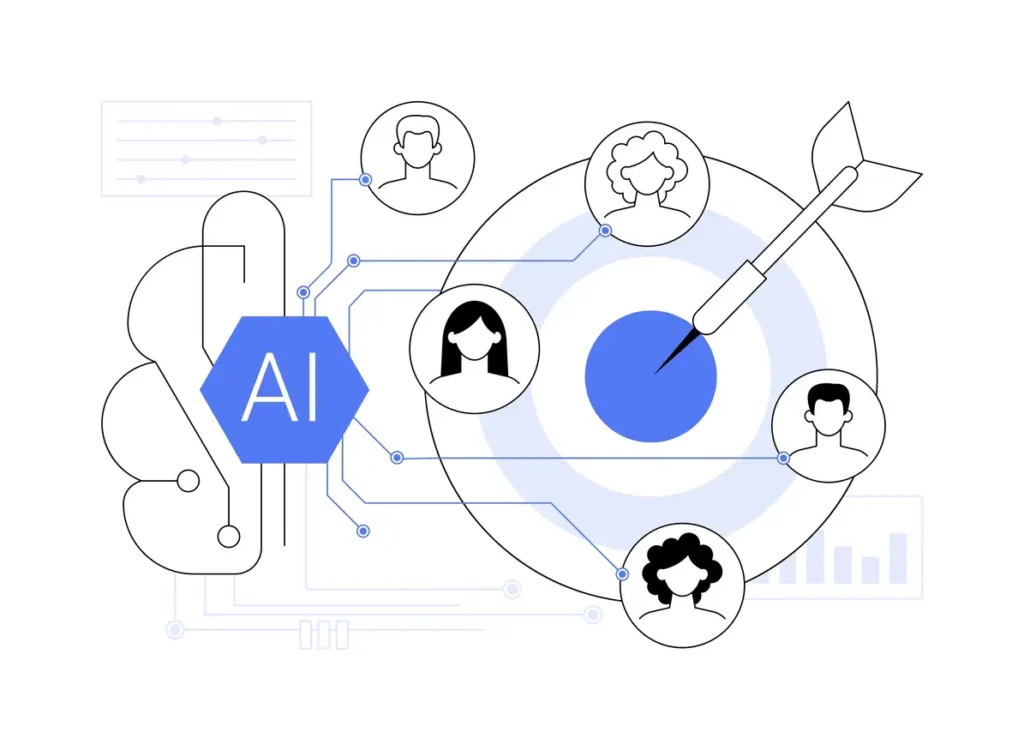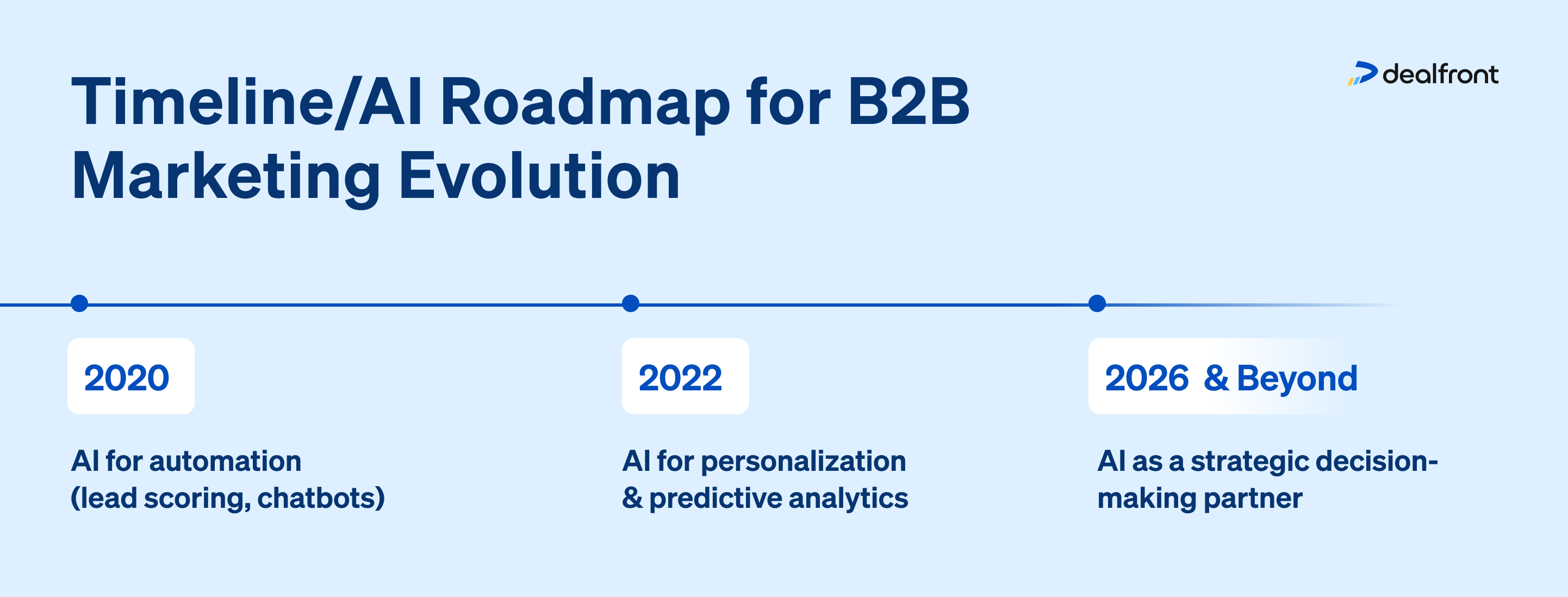Revolutionize Your Service: Just How AI Automation Is Changing B2B Procedures
AI automation is reshaping B2B procedures in considerable methods. Companies are embracing this innovation to improve workflows and enhance effectiveness. As jobs end up being automated, services can concentrate on critical growth as opposed to ordinary processes. The ramifications of these adjustments are extensive, influencing whatever from client interactions to provide chain management. Comprehending this transformation is vital, as the future of service depend upon the efficient integration of AI into everyday operations. What lies in advance in this advancing landscape?
Recognizing AI Automation in B2B Context
As services significantly look for efficiency, recognizing AI automation within the B2B context comes to be crucial. AI automation refers to the application of expert system technologies to improve and improve business procedures. In B2B atmospheres, this can manifest in numerous kinds, such as automating data entrance, optimizing supply chain logistics, or enhancing inventory monitoring. Organizations leveraging AI automation can lower functional prices, minimize human error, and boost performance. Additionally, AI tools can assess substantial quantities of data to give workable insights, making it possible for notified decision-making. The integration of AI into B2B operations not only transforms traditional workflows however also fosters agility and scalability, permitting businesses to adapt to market modifications promptly and effectively. Accepting this technology is necessary for remaining affordable in today's digital landscape.
Enhancing Client Experience Via AI
Just how can AI transform consumer interactions in the B2B industry? AI boosts client experience by supplying personalized, timely, and effective service. Intelligent chatbots and virtual aides can manage queries 24/7, ensuring customers get instant reactions. Anticipating analytics make it possible for organizations to expect consumer demands, tailoring offerings as necessary. AI-driven systems can evaluate consumer data, enabling targeted advertising and marketing strategies and enhanced engagement. Additionally, belief analysis tools analyze consumer responses, assisting organizations adjust their services. By automating routine tasks, AI releases up personnels to focus on high-value communications, cultivating stronger connections. The combination of AI not only enhances interaction however likewise builds trust and commitment, inevitably boosting the overall customer experience in the competitive B2B landscape.
Simplifying Supply Chain Monitoring With AI
AI plays a crucial duty in enhancing supply chain administration with anticipating analytics and automated inventory control (Minarik AI). By leveraging predictive analytics, businesses can anticipate demand fluctuations and change their procedures accordingly. Automated stock systems further enhance efficiency by making sure supply levels are preserved, decreasing waste and improving overall performance

Predictive Analytics Benefits
While many services encounter difficulties in managing intricate supply chains, predictive analytics uses a transformative service by leveraging huge amounts of information to anticipate patterns and optimize procedures. By evaluating historic information along with real-time inputs, predictive analytics enables business to determine patterns and anticipate future demands. This foresight enables more enlightened decision-making, improving performance and minimizing expenses. Additionally, organizations can proactively deal with possible disturbances by anticipating supply chain bottlenecks and changing strategies appropriately. The combination of predictive analytics not just boosts stock administration however also promotes stronger connections with distributors and clients via prompt responses to market changes. Eventually, the fostering of anticipating analytics encourages companies to remain affordable in a progressively dynamic organization environment.
Automated Inventory Control
As businesses progressively depend on anticipating analytics to maximize supply chain operations, automated inventory control becomes a powerful ally in this effort. By leveraging AI-driven technologies, business can enhance accuracy in stock tracking, reduce stockouts, and reduce excess stock. Automated systems examine real-time data, permitting organizations to forecast need variations and readjust stock levels accordingly. This not only improves order gratification however likewise improves cash money circulation administration by minimizing holding costs. In addition, AI can determine patterns in acquiring behavior, making it possible for more informed decision-making pertaining to vendor connections and purchase techniques. Eventually, automated inventory control not only boosts functional performance yet additionally boosts client satisfaction by making certain product accessibility, strengthening its function as a vital part in modern-day supply chain monitoring.
Data-Driven Decision Making Powered by AI
In today's affordable landscape, companies increasingly count on data-driven decision-making to enhance functional effectiveness and calculated preparation. Expert system plays a critical function in this change by evaluating large amounts of information swiftly and accurately. AI formulas determine patterns, fads, and abnormalities that human experts may neglect, enabling businesses to make educated decisions based upon real-time insights - Minarik AI. This capacity allows firms to forecast market changes, optimize resource allotment, and customize their offerings to consumer needs. Additionally, AI-driven analytics assist in pop over here danger assessment and monitoring, making sure that companies can navigate unpredictabilities successfully. By leveraging these sophisticated tools, companies not only improve their decision-making processes but additionally get a competitive benefit in their particular markets, promoting growth and innovation
Automating Repeated Jobs to Boost Efficiency
Streamlining repetitive tasks via automation significantly enhances productivity within B2B procedures. By carrying out AI-driven solutions, companies can get rid of mundane tasks such as information entrance, billing processing, and record generation. This shift enables workers to focus on higher-value jobs, promoting creativity and strategic thinking. Automating these taxing procedures not only lowers human error however also speeds up operations efficiency. In addition, organizations can accomplish consistent results and boosted precision, which is crucial in keeping customer satisfaction. The assimilation of automation tools makes it possible for organizations to assign resources much more successfully, making sure that teams can respond promptly to market needs. Ultimately, taking on AI for repetitive tasks is a calculated action that changes functional capacities and drives total business growth.
Integrating AI With Existing Company Processes
Numerous companies deal with difficulties when integrating AI with existing company procedures. These obstacles often originate from a lack of understanding concerning just how AI can complement current process. Effective integration calls for a complete assessment of existing procedures to identify locations where AI can include worth. Organizations has to also assure that their teams are equipped with the required skills to take advantage of AI devices effectively - Growth Systems For B2B. On top of that, smooth assimilation pivots on the compatibility of AI innovations with legacy systems. Business typically find it beneficial to embrace a phased strategy, piloting AI applications in specific departments before a more comprehensive rollout. This method enables for modifications based on first feedback, ensuring smoother changes and making the most of the possible advantages of AI automation in enhancing efficiency and performance
Future Patterns in AI Automation for B2B Firms
As B2B firms aim to the future, boosted information analytics is established to play an essential duty in driving decision-making procedures. Smart procedure automation will certainly also become an essential pattern, simplifying operations and boosting effectiveness. These improvements guarantee to reshape exactly how organizations run, ultimately causing even more agile and receptive organizations.
Boosted Information Analytics
While businesses progressively count on data-driven decisions, the function of AI in boosting information analytics is coming to be extra essential in B2B procedures. AI innovations facilitate the collection and analysis of huge datasets, allowing firms to uncover beneficial insights that drive strategic planning. Anticipating analytics powered by AI permits companies to anticipate market trends and client behavior with better accuracy. Furthermore, artificial intelligence formulas enhance data analysis, recognizing patterns that human analysts may forget. This brings about more enlightened decision-making and maximized resource allotment. As B2B business remain to accept AI-driven analytics, they can anticipate enhanced operational performance, boosted consumer experiences, and an one-upmanship in the market. The future of data analytics in B2B pivots on incorporating advanced AI capabilities.
Intelligent Process Automation
Intelligent Refine Automation (IPA) is positioned to revolutionize B2B operations by effortlessly incorporating AI technologies with standard business procedures. This ingenious approach incorporates robotic procedure automation (RPA) with sophisticated AI capabilities, allowing organizations to boost efficiency and accuracy. Companies can automate recurring tasks, such as data access and invoice handling, allowing workers to concentrate on tactical efforts. IPA likewise leverages artificial intelligence and natural language processing, enhancing decision-making with real-time data analysis. As services significantly adopt IPA, they can expect substantial price reductions and enhanced customer experiences. Future fads indicate a growing dependence on IPA for scalability and adaptability, positioning organizations to prosper in an ever-evolving marketplace. Accepting IPA will be necessary for preserving competition in the digital age.
Regularly Asked Concerns
What Industries Benefit Most From AI Automation in B2B Procedures?

How Can Tiny Companies Carry Out AI Automation Effectively?
Little companies can apply AI automation efficiently by identifying repetitive jobs, choosing suitable tools, integrating options gradually, educating personnel, and constantly analyzing performance to enhance processes, ensuring a smooth changeover and making the most of effectiveness.
What Are the Expenses Related To AI Automation Execution?
The prices associated with AI automation application commonly include software acquisition, framework upgrades, training team, recurring maintenance, and prospective appointment charges. These expenses can differ significantly based on the scale and intricacy of the automation services chosen.
Just how Do I Measure ROI From AI Automation Initiatives?
To gauge ROI from AI automation campaigns, one must evaluate price financial savings, efficiency enhancements, and profits growth versus implementation costs. Tracking essential efficiency indications with time provides useful insights into effectiveness and total roi.
What Abilities Are Required to Take Care Of AI Automation Projects?
Effective management of AI automation tasks calls for abilities in task administration, data evaluation, programming, and understanding AI modern technologies. Furthermore, solid communication, analytic abilities, and versatility are vital for steering the complexities of such efforts.
As businesses progressively look for effectiveness, recognizing AI automation within the B2B context becomes vital. The integration of AI right into B2B operations not only changes conventional workflows however likewise cultivates dexterity and scalability, permitting companies to adjust to market changes quickly and effectively. While businesses increasingly depend on data-driven decisions, the role of AI in enhancing information analytics is coming to be extra essential in B2B procedures - Growth Systems For B2B. Smart Process Automation (IPA) is poised to reinvent B2B procedures by flawlessly incorporating AI technologies with conventional company processes. Effective administration of AI automation tasks needs skills in project administration, data evaluation, programming, and comprehending AI innovations